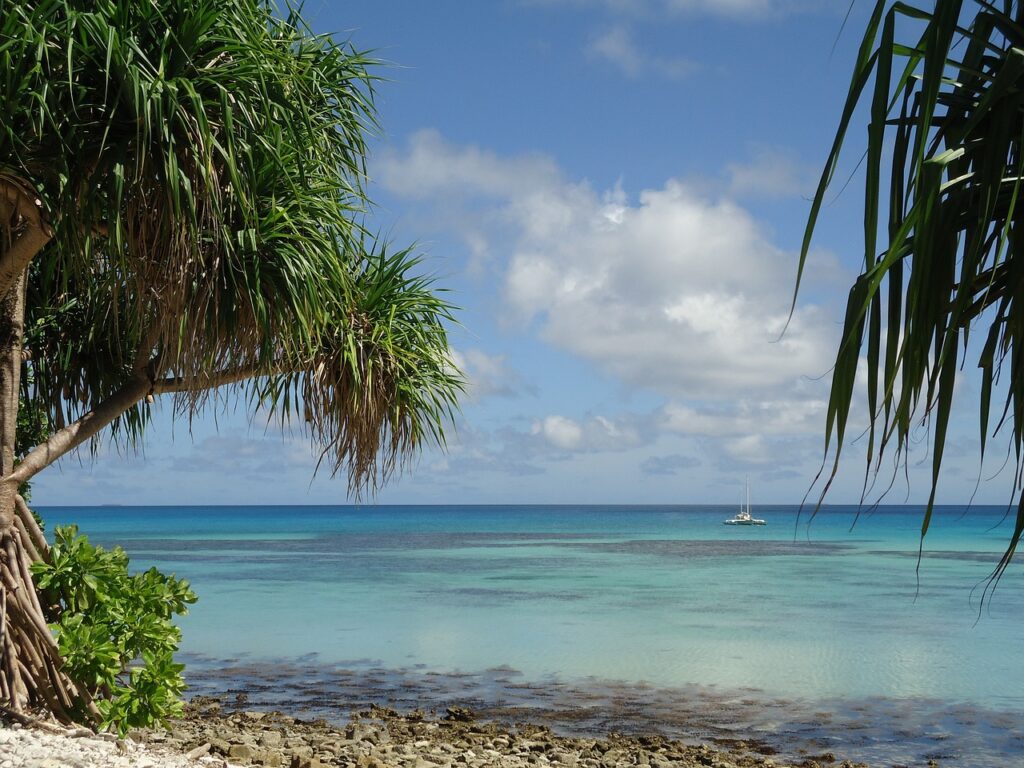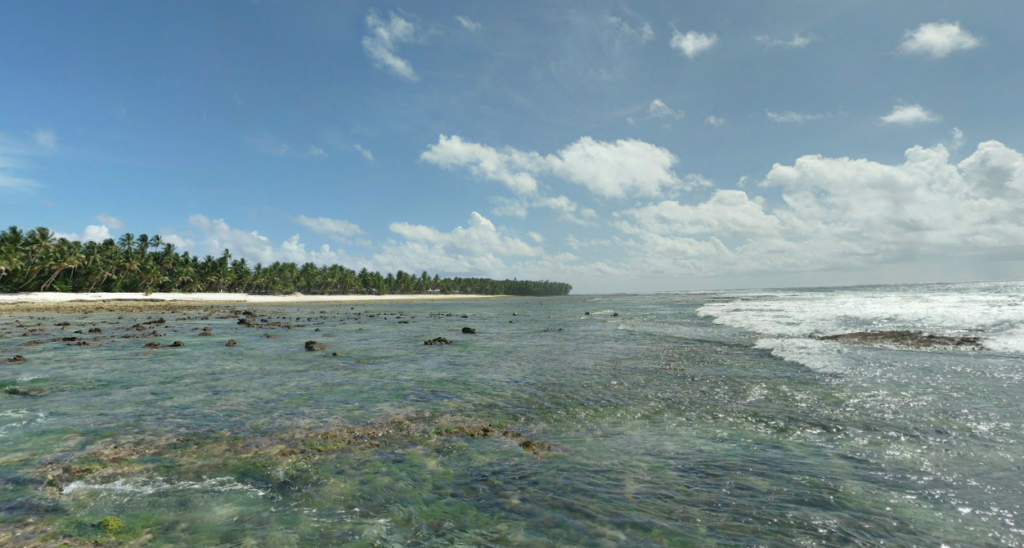Tuvalu / Kingdom of Tonga / Puleʻanga Fakatuʻi ʻo Tonga – Let’s explore here
What’s it like in Tuvalu?
Tuvalu is located in Polynesia in the Pacific Ocean, north of Fiji and New Zealand, and east of the Solomon Islands. It consists of three reef islands (Nanumanga, Niutao and Niulakita) and six atolls. It is the fourth smallest country in the world, after Vatican State, Monaco and its neighbour, Nauru. Its population of around 12,000 people is one of the least populous in the world. The capital is Funafuti, which houses 60 percent of the population.
The islands have poor soil, and thus the country relies heavily on imports and fishing for food. Licensing fishing permits to international companies, grants and aid projects, and remittances to their families from Tuvaluan seafarers who work on cargo ships are important parts of the economy.
The highest point is 4.6 metres (15 ft) above sea level on Niulakita.

A bit about the history of Tuvalu
Early Settlement and History
Tuvalu is a small island country in the Pacific Ocean, consisting of nine islands. It was first settled by Polynesians around 3,000 years ago. These early settlers developed a unique culture and way of life that was closely tied to the sea and their environment. The islands were originally known by different names, depending on the specific island or atoll, and were organised into traditional village based societies.
European Discovery and Contact
The first recorded European to visit Tuvalu was Spanish explorer Álvaro de Mendaña in 1568. However, it wasn’t until the 19th century that European exploration and contact became more frequent. Missionaries arrived in the early 1800s, bringing Christianity to the islands, which had a profound impact on the local way of life.
British Protectorate and Colonial Period
Tuvalu became part of the British Empire in the late 19th century, forming part of the Gilbert and Ellice Islands colony. In 1916, Tuvalu’s islands were officially designated as part of the British protectorate. While the islands were never heavily colonised, they became a British dependency, with the British government providing oversight of their governance and affairs.
Move Toward Independence
Following World War II, there was growing pressure for decolonisation across the Pacific. In 1974, Tuvalu became a separate British dependency, separate from the Gilbert Islands, which later became the independent state of Kiribati. Tuvalu’s growing desire for self determination led to a referendum in 1976, in which the people of Tuvalu voted in favour of independence.
Independence and Modern Era
Tuvalu gained full independence from Britain on October 1, 1978. It became a sovereign nation with its own government, maintaining its traditional cultural identity. Despite being one of the smallest countries in the world, Tuvalu is an active member of international organisations, including the United Nations, and has been vocal in raising awareness about climate change and its impacts on low lying island nations.
Challenges and Issues
Tuvalu faces significant challenges, particularly due to its low elevation and vulnerability to rising sea levels caused by climate change. The islands are increasingly at risk from coastal erosion, flooding and storms. The country’s economy relies heavily on international aid, remittances from its diaspora, and the sale of internet domain names (.tv), which has helped sustain its economy. However, the future of Tuvalu remains uncertain due to its environmental risks. The country continues to advocate for global climate action and seeks ways to preserve its culture and land in the face of environmental threats.

Tuvalu road trip
We haven’t finished our planning for our road trip through Tuvalu yet. When we do though, we’ll post it here, and in the blog.
Hopefully our journey will improve our knowledge of this intriguing and beautiful country, and enable us to meet some interesting people. We’ll be updating this page at that time – don’t forget to check back 🙂
What’s it like to drive in Tuvalu?
They drive on the left hand side of the road in Tuvalu.
We’ve also created a dedicated page to driving abroad, which you might find helpful 🙂
What currency do they use in Tuvalu?
In Tuvalu they use the Australian dollar. The use of credit / debit cards is not widespread, you should take cash. Travellers cheques are not really accepted. There are very few ATMs available.
You should make yourself aware of the amount that your bank charges you for using credit and debit cards abroad. Often credit cards are cheaper for purchasing items directly, and for withdrawing cash from ATMs.
What language do they speak in Tuvalu?
They speak English and Tuvaluan in Tuvalu.
What time zone is Tuvalu in?
Remember, when you’re planning your next trip to take a look at what time zone it’s in.
Do I need a visa to visit Tuvalu?
We’ve created a dedicated, more comprehensive page on visas, which you should find helpful. Check it out!
Is wild camping legal in Tuvalu?
Yes, wild camping is fine in Tuvalu, but steer clear of national parks and seek permission from the landowner.
What plug / socket type do they use in Tuvalu?

In Tuvalu they use plug / socket type I.
Health issues in Tuvalu
Is it safe to drink water in Tuvalu?
No, it is not safe to drink tap water in Tuvalu. Bottled water is readily available throughout the country.
What vaccinations are required for Tuvalu?
This NHS website is kept up to date with all relevant information on vaccinations in Tuvalu.
Phones in Tuvalu
What is the country calling code for Tuvalu?
The country calling code for Tuvalu is +688
What are the emergency phone numbers in Tuvalu?
- The emergency number for police in Tuvalu is: 911
- In Tuvalu, the emergency number for ambulance is: 911 / 999
- The emergency number for fire in Tuvalu is: 000 / 911
If you’ve got some useful info that you’d like to share, let us know!
And don’t forget to check out all the other pictures!
